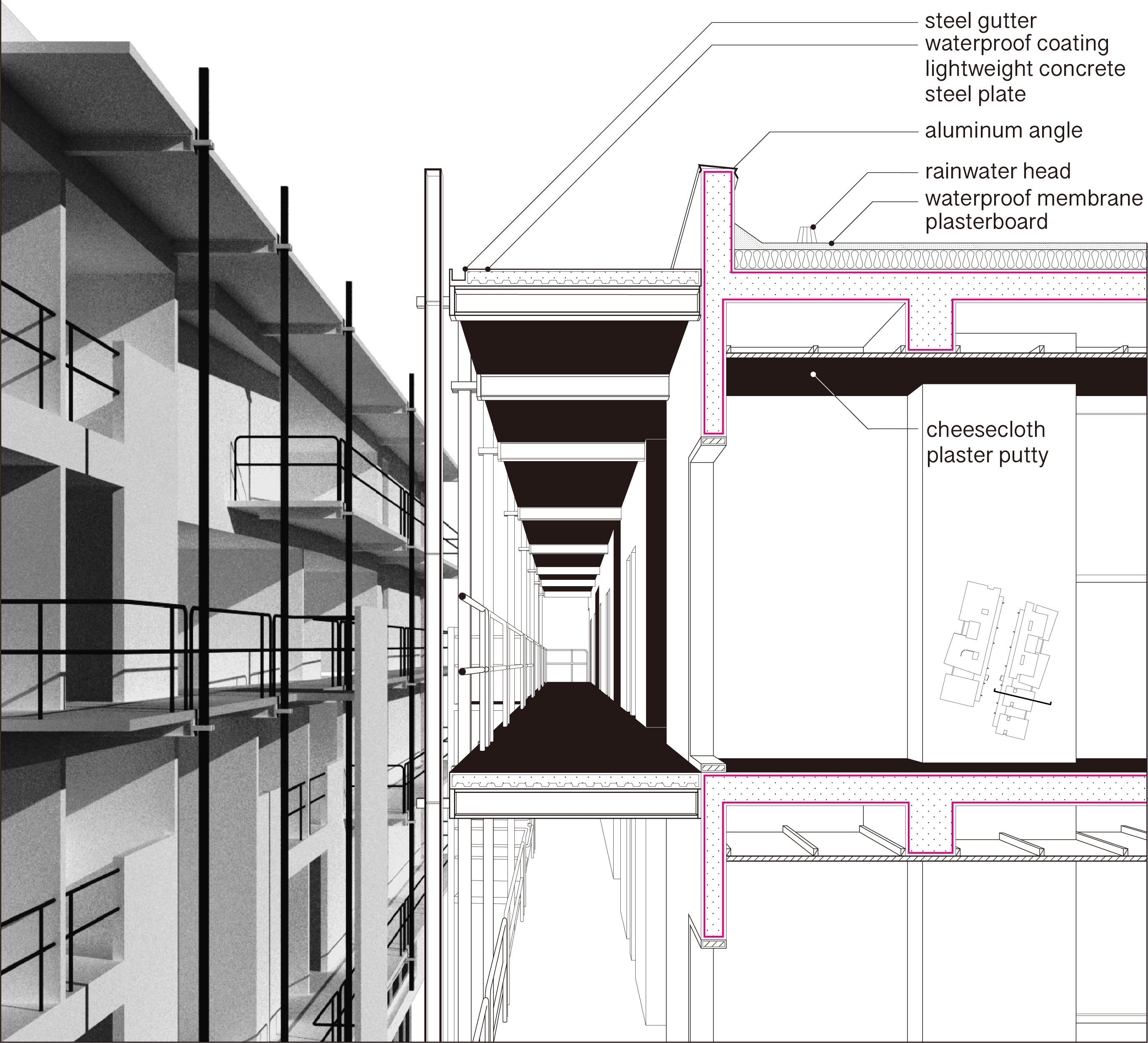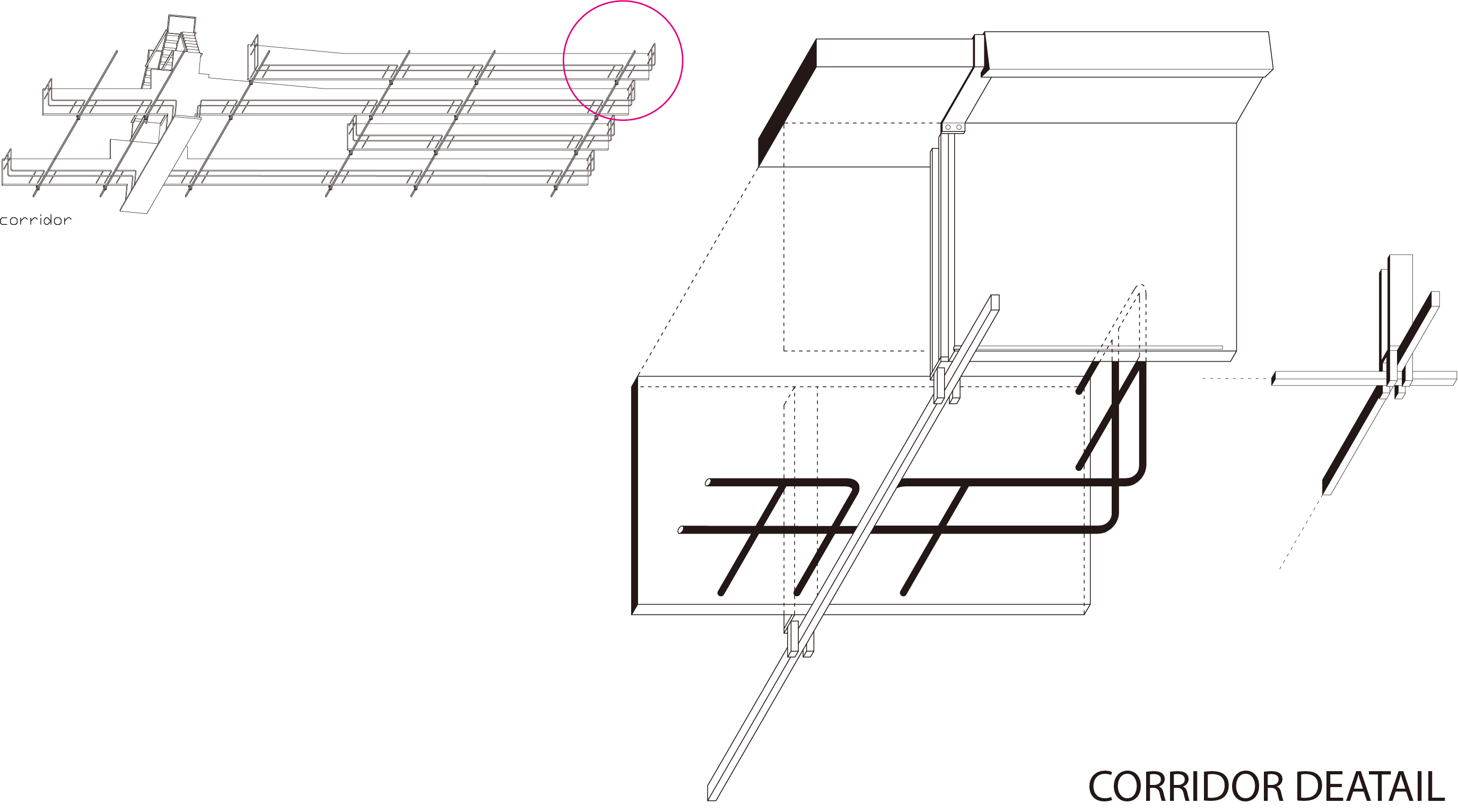Urban Collective Redefining
︎︎︎ Students + Fresh graduate’s housingDdesign studio, Department of Architecture, THU
Instructor: Zong-Xian Cheng

Collective dwelling, which is now a basic element constitutes the urban space owns a special status in architectural design. In addition to earlier issues like modularization and the living function of collective living, today we face different issues such as how to respond to the inhabitant's needs that brought by the modern urban lifestyle or how to define appropriate public and private relationships in collective living. The main direction of this design is to arrange proper spatial function and collective lifestyle for office workers and university students. The site is near Tunghai University and Taichung Science and Technology Park.

This project is divided into two buildings. One for students, one for workers. The ground floor and second floor is public spaces like a gym and cafe that can be used for everyone. All accommodation units are located above the third floor. There are also some public spaces provided at the upper level like the kitchen in the student building and the studio in the worker building. Those are the functions not provided in their private units but work when they need some interaction or inspiration. By doing this partition, this collective living space is easy to manage safety and privacy.




The usage of the space can be easily distinguished by the performance of the solid and void outer look of the building facade. The windows of the private realms open in a relatively regular and strip shape to obtain the best ventilation and lighting for the units. The public spaces have an axial offset from the general element on the facade, and they look more solid from the elevation. This partition in the facade increase the recognition of the building and also the diversity of urbanscapes.
The inner facade was performed by a corridor made by steel structure, this makes the walking experience in narrow inner space more lightweight and not oppressive.




 © MegaWatt Studio 2024
© MegaWatt Studio 2024